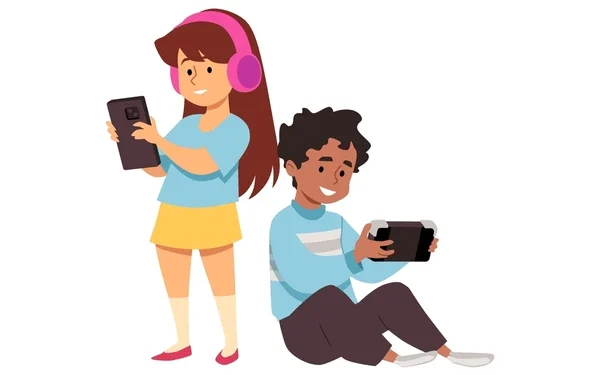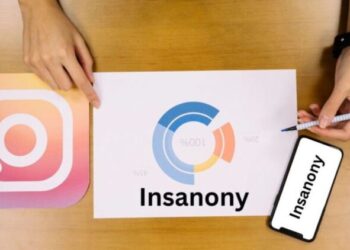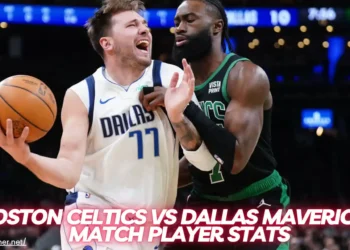A Generation Turning Pages Less
In an era saturated with instant content and digital gratification, it’s become increasingly evident that Why GenZ doesn’t wanna read books—at least not the way previous generations did. While millennials devoured Harry Potter and baby boomers cherished classics like To Kill a Mockingbird, today’s youth seem to prefer 10-second TikToks over 300-page novels.
This trend has concerned educators, librarians, and even publishing houses. However, pointing fingers without understanding the deeper transformation in how GenZ consumes information only scratches the surface. At the heart of it lies a subtle but powerful force: algorithms—those invisible hands shaping everything from what we see to how we think.
Why is GenZ so disengaged from traditional reading? It’s not laziness or lack of intelligence. It’s a complete reprogramming of how attention is caught, kept, and rewarded. And to unpack that, we first need to understand how algorithms have reshaped their world.
The Rise of the Algorithm: Rewiring Young Minds
In the last decade, algorithms have emerged as the invisible architects of our attention. From TikTok’s For You Page to Instagram Reels and YouTube Shorts, these powerful lines of code are engineered to deliver content based on our micro-preferences, engagement patterns, and even emotional responses. For GenZ, who grew up surrounded by such platforms, algorithms are not just influencing their entertainment choices—they are defining how they learn and think.
Unlike older generations who were trained to focus deeply through long-form reading, GenZ is now conditioned to scan, swipe, and scroll. This form of consumption rewards immediacy over depth, reaction over reflection. The average attention span has shrunk not because GenZ is less capable, but because algorithmic systems favor content that provides rapid, dopamine-releasing feedback. Books, which require sustained attention, internal visualization, and delayed gratification, simply can’t compete on the same neurological playing field.
Take this observation from digital anthropologist Natasha Dow Schüll:
“Algorithms train people’s attention like a muscle—but that muscle is optimized for bite-sized satisfaction, not long-term focus.”
This is precisely why “Why GenZ Doesn’t Wanna Read Books” is not just a generational complaint—it’s a digital design consequence.
Social Media vs. Traditional Books: A Battle of Formats
To better understand this shift, we must examine how GenZ engages with digital content compared to books. Traditional reading demands time, focus, and mental investment. Social media, on the other hand, thrives on speed, novelty, and visual storytelling. Learn more
Let’s break this down:
| Feature | Books | Social Media |
| Time Investment | High (hours) | Low (seconds to minutes) |
| Visual Stimulation | Low to none | High (videos, memes, gifs) |
| Feedback Loop | Slow (internal reflection) | Fast (likes, comments, shares) |
| Engagement Style | Passive but deep | Active but shallow |
| Algorithm Influence | None | Strong and personalized |
Even in educational settings, students increasingly prefer summaries, visual notes (like TikTok study tips), or AI-generated explanations over original texts. This is not because they reject the knowledge within books, but because the format feels outdated to a brain conditioned by digital ecosystems.
Moreover, platforms like TikTok and Instagram serve up endless new information, creating a paradox of learning: GenZ knows more snippets, trends, and facts than ever—but often lacks deep comprehension or retention.
Case Studies: GenZ Reading Patterns in Numbers
Understanding why GenZ doesn’t wanna read books requires more than assumptions—we need data-backed insight. Multiple studies conducted in recent years reveal a dramatic shift in how young people engage with reading. According to a 2024 Pew Research Center study, only 22% of GenZ respondents said they had completed a full-length book for leisure in the past six months. This is a stark contrast to millennials, 42% of whom read books for enjoyment at the same age. These statistics indicate not only a generational change but a behavioral transformation driven by technology and content consumption trends.
Further supporting this, the UK’s National Literacy Trust reported a 37% decrease in print material consumption among teens, paralleled by a 62% rise in engagement with audio and video storytelling platforms. These figures suggest that the medium, not the message, is the primary barrier. GenZ still craves stories—but in formats that reflect their screen-dominated lives. Even school librarians echo this shift. An American Library Association poll found that 75% of high school students now prefer graphic novels, podcasts, and short-form fiction over traditional novels.
Interestingly, real-life quotes from GenZ readers reflect this evolution. Seventeen-year-old Mia Ramirez explained, “Books take too long, and I already feel behind. TikTok gives me the vibe of a story in 30 seconds.” This comment perfectly encapsulates the trade-off: depth and detail exchanged for speed and emotional immediacy. These insights show that GenZ is still engaged with narrative—just not in the linear, long-form style of generations past.
What Schools and Parents Can Learn from This Shift
Rather than criticizing or labeling GenZ as lazy or uninterested, it’s far more productive to analyze their reading behavior through an adaptive lens. The reason why GenZ doesn’t wanna read books isn’t because they lack curiosity or intelligence—it’s because the world they live in offers more stimulating, interactive alternatives that are hard to resist. Therefore, educators, parents, and content creators must shift their strategies to meet GenZ where they already are—on screens, apps, and algorithm-driven platforms.
One powerful strategy is to introduce interactive and gamified reading environments. Educational platforms such as Epic! or ReadTheory allow students to read, play, and learn simultaneously, tapping into their natural engagement patterns. Schools can also offer hybrid reading models that combine traditional literature with modern media—like pairing a classic novel with a YouTube explainer, podcast discussion, or a VR simulation of the book’s setting. This blended method can breathe new life into older content.
From a parenting perspective, modeling digital literacy with a touch of curiosity can go a long way. Reading together, discussing online articles, or even reviewing fan fiction and manga with children demonstrates that reading isn’t limited to paperbacks. The point is not to force a return to old habits, but to reimagine what reading looks like in a world ruled by visuals, AI, and social feedback loops. When books begin to reflect the rhythm of modern life, GenZ will rediscover their magic on their own terms.
Fazit (Conclusion)
The answer to “Why GenZ doesn’t wanna read books?” lies not in judgment, but in understanding. Algorithms have rewired how young minds respond to content, making traditional reading feel like a foreign experience. However, this doesn’t mean GenZ lacks curiosity or intelligence—it means they need new ways to engage with knowledge.
By accepting this shift and adapting how we present literature, storytelling, and education, we can rebuild a bridge between books and the most digitally native generation ever. The challenge is not to convince them to love books the way we did—but to help them find stories in the formats they already embrace.
FAQs
1. Is GenZ completely against reading books?
Not at all. Many still read—just differently. They often prefer digital, audio, or short-form storytelling.
2. How can we encourage GenZ to read more?
Make content more interactive, visual, and relevant. Graphic novels, apps, and gamified reading platforms help.
3. Are audiobooks a good replacement for reading?
Yes. Audiobooks build comprehension and engagement, especially for learners with short attention spans.
4. Can algorithms ever promote reading?
Absolutely. Platforms like Goodreads or AI-based reading apps can use algorithms to recommend exciting books GenZ will love.

















